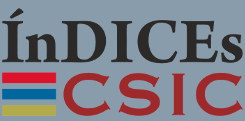Interpretation and Institutional Choice at the WTO
Keywords:
WTO, World Trade Organization, International Trade, Judicial Interpretation, Comparative Institutional AnalysisAbstract
This article develops the framework of comparative institutional analysis for assessing the implications of judicial interpretation in the World Trade Organization (WTO). The analytical framework offers an improved means to describe and assess the consequences of choices made in treaty drafting and interpretation in terms of social welfare and participation in social decision-making. The analysis builds on specific examples from WTO case law. Our framework approaches treaty drafting and judicial interpretive choices through a comparative institutional lens — that is, in comparison with the implications of alternative drafting and interpretive choices for social welfare and participation in social decision-making processes. By deciding among alternative interpretations, the judicial bodies of the WTO effectively determine which social decision-making process decides a particular policy issue. That decision, in turn, can have profound domestic and international implications. While this article focuses on the WTO, the framework developed here has general relevance for understanding the interpretation of international and domestic legal texts from “law and economics” and “law and society” perspectives.
DOWNLOAD THIS PAPER FROM SSRN: http://ssrn.com/abstract=1964556
Downloads
Downloads:
PDF 155
Downloads
Published
How to Cite
Issue
Section
License
OSLS strictly respects intellectual property rights and it is our policy that the author retains copyright, and articles are made available under a Creative Commons licence. The Creative Commons Non-Commercial Attribution No-Derivatives licence is our default licence, further details available at https://creativecommons.org/licenses/by-nc-nd/4.0 If this is not acceptable to you, please contact us.
The non-exclusive permission you grant to us includes the rights to disseminate the bibliographic details of the article, including the abstract supplied by you, and to authorise others, including bibliographic databases, indexing and contents alerting services, to copy and communicate these details.
For information on how to share and store your own article at each stage of production from submission to final publication, please read our Self-Archiving and Sharing policy.
The Copyright Notice showing the author and co-authors, and the Creative Commons license will be displayed on the article, and you must agree to this as part of the submission process. Please ensure that all co-authors are properly attributed and that they understand and accept these terms.


















